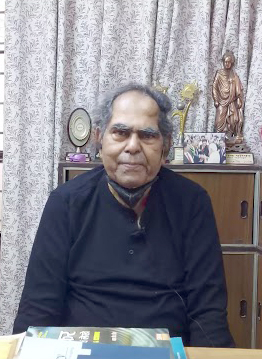
Dr. T. Santhanam
Abstract:
Academic success is vital to a student’s life, offering pathways to improved career opportunities and fostering a sense of achievement. Hypnosis has emerged as an effective tool for enhancing academic performance by helping students relax and focus, thus improving their ability to absorb and retain information. Students can access their mental resources more effectively in a relaxed state, leading to organized, timely, and productive study habits. Hypnotherapy also addresses personal issues that may interfere with concentration, helping students overcome mental blocks and negative beliefs while fostering a learning style that promotes efficiency. The benefits of hypnosis for academic performance include improved learning abilities, better management of test anxiety, and the development of positive study habits. Hypnosis unlocks their full potential by increasing motivation and helping students achieve their academic goals. The state of deep relaxation and heightened suggestibility achieved through hypnosis allows the subconscious mind to become more receptive to positive suggestions, bypassing any negative thoughts that might hinder academic success. Research conducted between 1967 and 1989, along with more recent studies by Stanley (2011), K. Varga and E. Banyai (2023), and N. UzielI Eli (2023), has demonstrated the successful application of hypnosis in enhancing academic performance. Given this evidence, applying clinical hypnosis techniques for improving school students’ academic performance is highly warranted.To optimize academic outcomes, students should be trained in various techniques and strategies, including memory enhancement, study strategies, concentration improvement, success imagery, and methods for managing test anxiety. Other beneficial techniques include Erickson’s methods for facilitating learning speed, self-hypnosis for reading comprehension, advanced hypnosis for reading speed, Gorman’s ego-strengthening techniques, and strategies for improving performance in mathematics and statistics. Additionally, techniques for managing examination panic and overcoming phobia are crucial. By implementing these approaches, students can cultivate better study habits, sharpen their focus and concentration, manage test-related anxiety, and significantly enhance their academic performance across various subjects.
Current Position:
- Director, SDS Academy of Behavioural Sciences, Chennai (Accredited by Rehabilitation Council of India)
Former Role:
- Head, National Career Service Centre for Differently Abled, Government of India
Affiliations:
- International Affiliate Member, American Psychological Association
- Clinical Supervisor, Australian Counselling Association
- National Convener, Indian School Psychology Association
- International Member, American Society of Clinical Hypnosis
- Life Member, Academy of Hypnosis, India
- Professional Member, Association of Rehabilitation Psychologist Professionals – India
Awards:
- National Award (twice) for Contribution to Disability Empowerment (President of India)
Publications:
- Author of three books on Specific Learning Disabilities
- 40+ empirical research papers
Training & Clinical Experience:
- Trained 10,000+ students in various psychological disciplines
- Counseled 100,000+ clients over 40 years
Keynote Speakers

Prof. Dr. N. K. Saksena
PPN College, India

Dr. Subasree Vanamali
Vellore Institute of Technology (VIT), India















